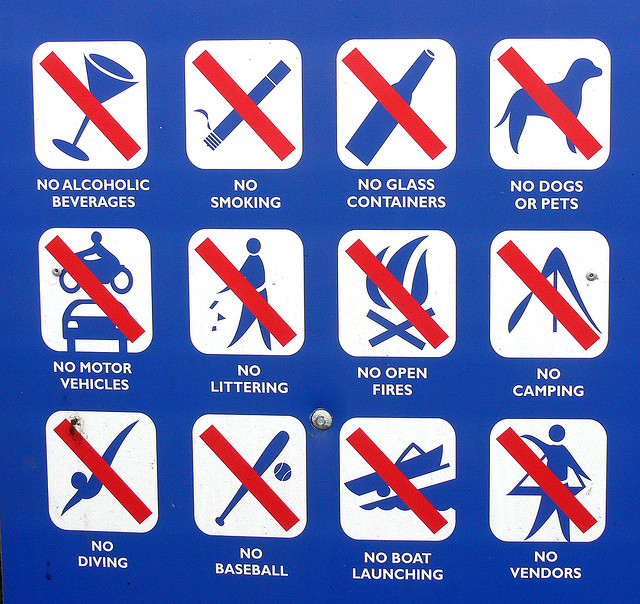Welcome to Experience Points, my weekly response to one of your questions about anything! Life, relationships, faith, or gaming…really anything is game! If you’d like to send in a question, feel free to email me. Here’s this week’s question:
Have you experienced intolerance from religious people about your gaming hobby?
This is an excellent question—and one that I dealt with in more philosophical terms here for the Mad Adventurers Society. But for our purposes today, I’ll just tell you the story.
Consider the Source
Three years ago, I was sitting on my front porch, typing away at my laptop. After all, sermons don’t write themselves! As I was working, my phone buzzed—a text from an old friend. Apparently, he’d seen me posting on social media about playing Dungeons & Dragons…and he was concerned. He had lots of questions about witchcraft, magic, and the power of demonic beings. What was frustrating is that it didn’t matter how I responded. I had no leg to stand on, as far as he was concerned. This new hobby was dangerous, opposed to the Bible, and hazardous to my faith.
Does that count as intolerance? Compared to many of your stories, I’m sure it seems more like a minor inconvenience. But really, let’s think more about this brief interaction. What motivated my friend in contacting me? His real intent was love, even though it was communicated in a way that didn’t necessarily feel that way. He wanted to protect and guard me, which is a noble desire, regardless of how it felt and regardless of whether he was right!
As you think back on your own experience of intolerance, it can help to consider the source. Why did that person say anything about your hobby? What motivated their actions? Perhaps their desires really were well-meaning. It’s a question worth considering.
Consider the Worldview
I can only speak from my own experience as a Protestant who grew up in the Southern United States. But I’ve found that often there are other things underlying intolerance of the gaming hobby—specifically, tabletop RPGs, like Dungeons & Dragons. It’s not only personal intentions that motivate action, a person’s worldview also motivates their actions. The ever-insightful Rob Almond once pointed out that the people who oppose Dungeons & Dragons on religious grounds are often the same people who oppose rock and roll on religious grounds.
And, yes, those folks are still out there too.
And yes…they do still refer to it as “rock and roll.”
There are lots of words that people use to describe them: fundamentalists, legalists, literalists. The labels at this point are inconsequential. I inhabited that religious realm for much of my life and, I would imagine, some people might still apply some of those labels to me. That’s OK. Again, the labels are inconsequential at this point. I believe there are three philosophical/religious errors that these groups make—and these errors lead them to their attitudes about tabletop RPGs.
Now why am I going to point out what I believe to be flaws in their worldview? First, it’s to help you—the gamer—to understand them better. It’s easier to forgive someone, when you can understand them. It’s easier to let go of past frustration, when you understand what brought it about. Second, I point out these flaws not so that you can attempt to change people’s minds on this matter. As I mentioned over on the Mad Adventurers Society, you’re not likely to change people’s minds if they already have a worldview that is bent against tabletop RPGs. Don’t sweat that. This discussion is purely to help you sort through the intolerance that you’ve experienced—or that you might experience in the future. So here we go:
Error #1:
If an activity seems associated with something wrong, then the activity must be inherently wrong.
If you believe that demons are (a) real and (b) evil, it might seem that playing a game that involves demonic characters is also real and evil. If you believe that killing is objectively wrong, it might seem that pretending to kill (even for good intentions) is likewise wrong. And yet, I don’t find too many Christians hassling me for listening to Johnny Cash.
After all, Johnny was a Christian! Sure, he had some rough times early on, but he cleaned up, found Jesus, and got on the straight and narrow. And then, he kept singing about killing and drinking and fighting and cussing. Say what?! That’s right! You see, Johnny was a storyteller. And his stories teach you something about life—about manhood—about loss—about struggle. And there’s something redemptive in that. There’s something cathartic in those stories.
Tabletop roleplaying games can work the same way. In fact, I think they should. I like to walk away from a campaign appreciating life and looking at it in a different way. I like to be thinking about justice and brokenness and redemption. I like to participate in a story in which I learn about courage, fallenness, and honor. Here’s the bottom line: telling a story doesn’t make you guilty of the wrongdoing that happens in the story. At least, no more than Johnny Cash was a killer and a scumbag.
Error #2:
Behavior modification is the intended ends of all religion.
I can’t speak to all religions, but I can speak to my own religion. The God of the Bible is not primarily concerned with changing people’s behavior. Now, that may come as a surprise to you, because it seems like many professing Christians have started thinking that. And how do they implement that belief? They try to change your behavior! In this case, your gaming. In other cases, any manner of behavior they find reprehensible or dangerous. After all, if your game has demons and killing, you must be doing wrong, right? And if God wants to change your behavior—and God is loving—then it must be loving to try to change your behavior, right?
I think you see how this train of thought works. I won’t go into a full-blown sermon here, but here’s the salient point: changing people’s behavior doesn’t change people’s hearts. In fact, it works the other way around. Behavior change is a consequence—a result—not a starting point. And yet, many religious people have got this all turned around.
And here’s the real kicker: God is not in the self-help business. He’s not looking to rehaul your behavior. He’s looking to rehaul your priorities—your mind—your direction. That’s a totally different thing. Sure, it effects behavior, but that behavior change is not the goal.
Error #3:
Garbage in = Garbage out.
We’ve all seen Back to the Future 2, wherein Doc Brown uses organic waste to power his time machine. There’s an important lesson to be learned there: one man’s garbage is another man’s treasure. What you may be able to handle in good conscience, I may not be able to handle. This can apply to matters like alcohol, for example. If someone grew up with alcoholic parents, they may not tolerate any drinking in their home. But that doesn’t mean that it’s wrong for you to drink.
The same applies to roleplaying games. Someone may perceive your hobby as “garbage.” They may expect it to result in “garbage” results. And, as a result, they want to intervene and help you. So let me be the guy to ask the question! We all have our predispositions and histories. Maybe what’s OK for one person isn’t OK for another? I understand there are moral absolutes and that sort of thing, but last time I checked, no religion says anything explicitly about roleplaying games (I’m open to correction here).
“Garbage in” may typically result in “garbage out.” But how can we judge what garbage is objectively? It’s a question worth considering.
Understanding Yields Understanding
As you consider your own experience of intolerance as a gamer—especially from religious loved ones—I hope you’ll consider these three errors that may have been motivating their actions and words. As you do, I hope you’ll find that their intentions—though perhaps misguided—were really seeking your best interest. As you understand them, I hope you’ll grow in a sense of understanding. That you’ll be able to forgive and to move on. After all, it’s not your job to change their hearts or their behavior. We’ll leave that up to more capable hands.
How have you experience intolerance from religious folks? Do you find these errors to have been motivating factors? How did you respond? Sound off in the comments!
(Photo Credits: Vicki & Chuck Rogers and Philip Kromer)



This is a very insightful discussion. As someone who was steered away from gaming by well-meaning but ill-informed folks early on, I can say much of this is really key to preserve friendship with folks who have strong biases (on any issue, and in any direction).
I didn’t think about that Joshua. This really could be applied to a number of different issues on which we agree with loved ones. Thanks for the comment!
Did the people who steer you away do so on religious grounds? Or others?
I think these are very valid points and it is important to keep them in mind.
But I think that the phrasing “last time I checked, no religion says anything explicitly about [roleplaying games]” is somewhat unfortunate. This kind of wording is abused so often and I think it’s not really the best approach to any issue of conscience. At least when it comes to Christianity – I can’t really talk for any other religion.
Most of the moral guidance in the Bible is general and unspecific, and probably for a reason. Because there are practically infinite ways to be wrong and it’s not feasible to list them all. And again the Bible isn’t really just a list of DOs and DON’Ts. Of course there _are_ explicit rules, but nothing is explicitly mentioned on let’s say health care, or drinking and driving, donating organs or cloning. Or videogames. Or the proper use of firearms. We could go on forever.
So with all due respect I just would like to point out, that once you use that as an argument for your cause, it will be harder to argue against it when its abused. And it’s easily abused.
I hope that’s not too nitpick-y.
Galev, not nitpicky at all! In fact, it’s a very helpful distinction to make (especially since I’ve been reading Romans 14-15 over the last few days, which deals with matters of conscience).
Again, we’re now talking in the realm of Christian theology, so there’s our disclaimer.
Scripture does not allow Christians to bind the conscience of other Christians on matters that are considered secondary or debatable. And that would apply to the many issues you addressed above: health care, drinking and driving, donating organs, cloning, videogames, firearms, etc. So my statement was probably too broad-brushed, because I have (what I feel are) biblical reasons for my views on those issues.
The bigger point that I was trying to make (it seems somewhat less carefully than I should) was this:
Roleplaying games are a matter of conscience. Because Scripture does not speak directly to RPGs, it is a matter of interpretation and conscience. Which means that it might be OK for some and not for others (insert examples about drinking, smoking, and other classic conscience issues).
Thanks for the helpful reply. It was well-stated and (I hope) is well-taken.
Oh, now that you explained it, it makes more sense. First I didn’t see the connection, it just sounded like you were sort of discarding the problem as “It’s not explicitly stated in the Bible so we can do whatever we want”. And judging from the rest of the article, I knew that is not what you mean. And it wasn’t indeed. You meant that “Since it is not explicitly mentioned (and doesn’t really fall under most of the broader themes [eg. adultery] either), it is a matter of conscience.”
But yeah, it sounds like we are quite on the same page on this. Thanks for the clarification.
Any time. I’m glad you brought it up. Needed to be clarified.
Man, what an outstanding article. I’ve written something along these lines before, about the importance of understanding, but in relation to something other than RPGs. I work for my church, and there are times that even the people I work in the office with fail to consider another person’s point of view. In my experience, that lack of reaching out to understand another’s worldview is what causes most of the arguments I’ve seen or been privy to. It’s also that same lack that drives most vitriolic comments from random anonymous people online about politically divisive topics, like abortion rights, LGBT issues, gun control, etc.
I recently ran an RPG session 2 of my pastor’s sons, one of their wives, and another young person (you can only legitimately say “young person” when you’re over 35), and none of them had ever played one before. I asked up front if there were any topics that were considered “off the table”, so as not to create awkward moments, and rape and pedophilia were brought up, so we made sure not to go near those topics in-game. So when people take into consideration someone else’s feelings, or at least allow for the fact that somebody else’s opinion and/or experience are different than their own, we have can have much better understanding among all of us. And like the Scripture says, in all your getting, get understanding.
BTW, the 4 I’d played with absolutely loved the game, and can’t wait to play another one. I may have to start a gamers’ guild at my church and invite people from the community to join us.
I run a game for my kids (11, 8, 5) from time to time. I’ve taken the subject matter, made it fun, and then we talk about the adventure after.
Part of the problem I think with D&D in particular is so much misinformation on what it is. My father-in-law, a well meaning gent, would say it was playing as demons and devils. Which .. has nothing to do with the game in general. My dad, another well meaning gent, said it was about having no barriers or consequences to actions. Which, again .. really has nothing to do with the game.
When I sat down and patiently explained what a RPG game really is, my dad got it. He didn’t necessarily jump into a campaign, but he got it. He understood it was basically an interactive choose-your-own-adventure story. My father-in-law is stubborn. So I tell my kids not to tell Grandpa they’re playing dungeons and dragons.
A lot of it is simply perception. Sadly, people don’t want to be educated on things. Humans tend to listen to fear and react. Unless they’re willing to listen to the facts, they are motivated by the fear.
Side-note: My dad never played D&D. He did, however, allow me to play a few times at the house. And he even bought my first dice and books for me. Version 2.5 I believe.
Thanks so much for sharing your story, Tadd. I hope that more gamers’ stories can play out in such a way!